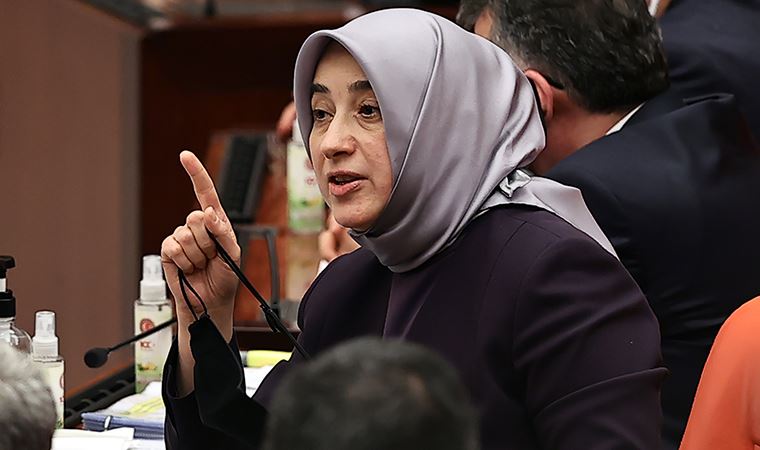Özlem Zengin, a senior official from Turkey’s ruling Justice and Development Party (AKP), has come under fire once again due to remarks claiming that women who were jailed as part of a government-led crackdown on the Gülen movement deliberately conceive in conjugal rooms to create the perception that women in Turkey are jailed with their babies.
Zengin had previously attracted widespread criticism when she denied the practice of strip-searches in Turkey’s detention centers and prisons, accusing women of being dishonorable for failing to immediately report alleged strip-searches, and claimed that Gülen-linked women are conceiving on orders from the movement to create the perception that there are pregnant women and women with babies in Turkey’s prisons.
In the latest of her scandalous statements, Zengin claimed that women who were jailed due to their alleged links to the Gülen movement, accused by the Turkish government of masterminding a failed coup in 2016, are conceiving in “pink rooms,” meaning conjugal rooms introduced as a prison reform by the Turkish government in 2013, with inmates allowed to spend between two and 24 hours with their spouses depending on the circumstances.
“We took the right step and introduced the practice of ‘pink rooms.’ But Fetö [a term coined by the AKP government to refer to the Gülen movement as a terrorist organization] people conceive in prison when taking advantage of this practice. They want to show mother-baby-in-jail photos to the world. I am being targeted for saying this,” Zengin said in televised remarks over the weekend.
“Their goal is to tarnish Turkey’s image,” she added, unleashing a new wave of criticism against her because people arrested as part of investigations into the Gülen movement are banned by Turkey’s Justice Ministry from using pink rooms. The AKP politician also claimed the pregnancy rate among Gülen-linked inmates is four times higher than other female inmates despite the fact that Gülen-linked people cannot use the conjugal rooms.
Ömer Faruk Gergerlioğlu, a prominent human rights activist and a lawmaker from the pro-Kurdish Peoples’ Democracy Party (HDP) who was earlier targeted by Zengin for terrorizing the Turkish Parliament because he was the first to raise the claims about strip-searches in Turkey, was among those outraged by Zengin’s latest remarks.
“She never stops. Lies, slander and recklessness. Oh conscience, where are you?” Gergerlioğlu tweeted.
Lawyer Nurullah Albayrak explained on Twitter that use of the “pink room” is not a right granted to the inmates in Turkey but a “reward” given to privileged inmates and convicts.
“This practice, which went into effect in 2013 for all inmates, was banned for Gülen movement followers in 2017. Turkey’s Constitutional Court subsequently ruled in favor of the ban. But Özlem Zengin was shamelessly able to tell a huge lie by claiming that Gülen followers had been benefiting from these pink rooms, introduced in 2013, for years and even four times more than other inmates,” said Albayrak.
According to a statement from Turkish Interior Minister Süleyman Soylu on February 20, a total of 622,646 people have been the subject of investigation and 301,932 have been detained, while 96,000 others have been jailed due to alleged links to the Gülen movement since the failed coup. The minister said there are currently 25,467 people in Turkey’s prisons who were jailed on alleged links to the Gülen movement.
The Gülen movement strongly denies any involvement in the coup attempt or in any terrorist activity.
According to a report recently released by the Brussels-based human rights monitor Solidarity with OTHERS, a nongovernmental organization that consists primarily of political exiles from Turkey, a total of 219 pregnant women and women with children under six years of age were arbitrarily detained or arrested over their suspected links to the Gülen movement.
A total of 92 pregnant women and women who had just given birth, 40 mothers with infants between 0 and 6 months old and 87 mothers with children between the ages of 6 months and 6 years were detained or arrested over Gülen links as part of operations carried out in 56 provinces, the report said.
The war against the movement culminated in the aftermath of the failed coup attempt in Turkey on July 15, 2016 because President Erdoğan and his AKP government accused the movement of masterminding the abortive putsch and initiated a widespread purge aimed at cleansing sympathizers of the movement from within state institutions, dehumanizing its popular figures and putting them in custody.
